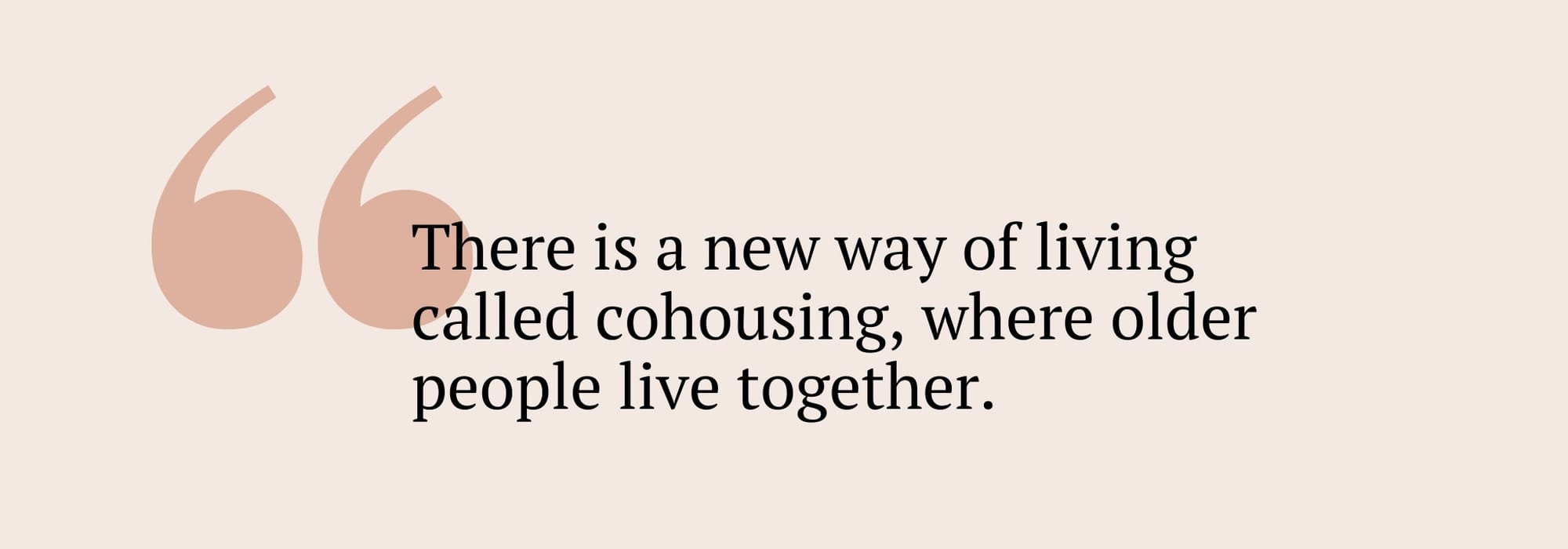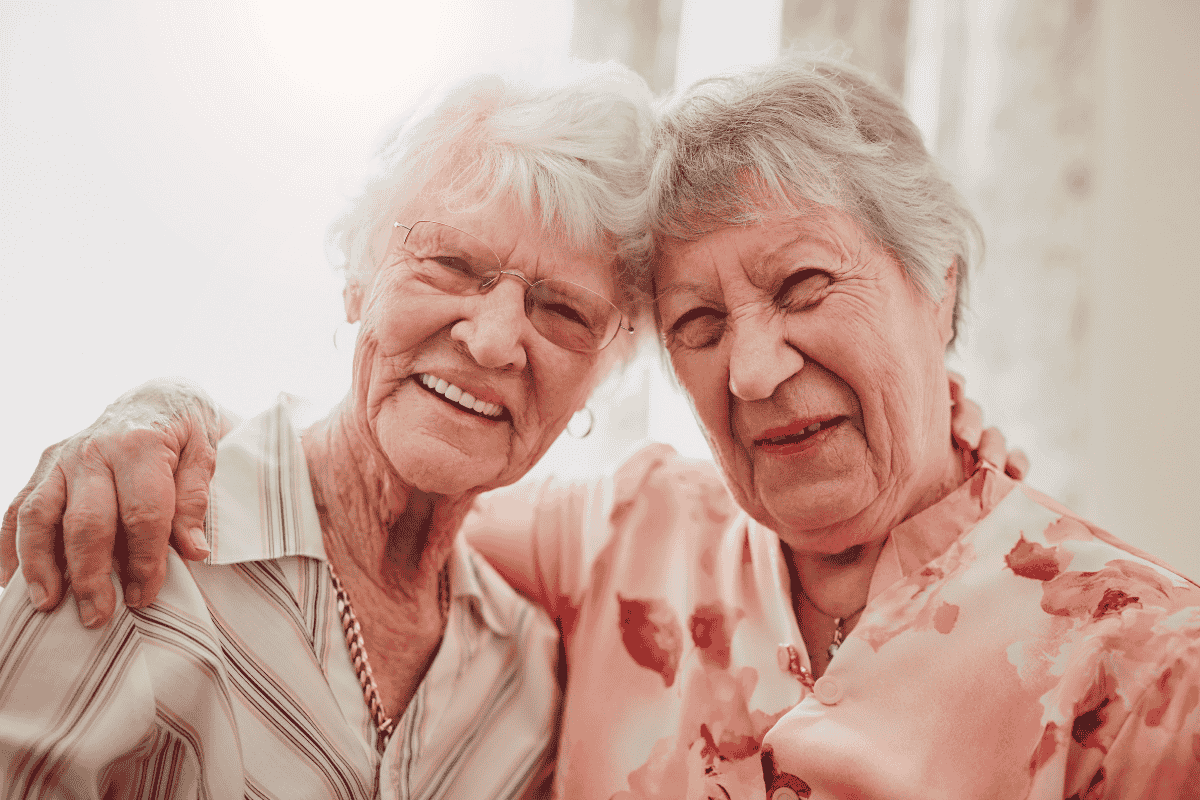An increasing number of people are growing older without care-providing children. But that doesn’t have to mean going it alone…
I have several friends who, like me, are reaching their 40s without any children. I took time to make this decision for myself; a privilege that I know not everyone is granted. But one thing that’s been on my mind lately is the long-term implications of ageing without children. If I’m lucky enough to live until I’m 80, who will accompany me to hospital appointments? Where will I turn if I need financial support? Will I regret my decision as retirement approaches?
And while no one should feel obliged to perform a caring role for a parent – many simply can’t due to financial reasons, geographical distance, and many other factors – the truth remains that gaps in elderly care are regularly filled by adult children.
The Office for National Statistics (ONS) reports that the number of women in England and Wales who are over the age of 80 and without children could triple by the year 2045. Although the ONS doesn’t record data on how many men become fathers, it’s estimated that around 23% of men over 45 are without children. Often referred to as the ‘invisible million’, the National Care Forum says that this group has been neglected when thinking and planning policy on ageing.
The term Ageing Without Children (AWOC) isn’t just given to people who have consciously chosen to live child-free, or were unable to have children. There are several reasons why someone may be AWOC – perhaps because they are estranged, their children have passed away, or their children have their own needs that mean they’re unable to support their parents later in life.
Service gaps lead to reliance on children
As life expectancy has increased over time, so too has the pressure on elderly social care, leaving service providers overwhelmed and under-resourced in terms of delivery. As a result, family members are often left with no choice but to fill the gaps, with a staggering one in two adults feeling that they will have no choice but to care for their elderly parents when they become too frail. That makes people who are AWOC potentially vulnerable, and in need of alternative options.
Planning for the unknown
Without children to advocate or make decisions on your behalf, putting legal protections in place becomes really important. You should appoint someone as power of attorney to make decisions about your health, welfare, and property on your behalf. According to alzheimers.org.uk, you can choose anyone over the age of 18.
Make a will, and consider setting up an advance decision (sometimes called a living will) to outline your preferences regarding medical treatment. You might want to explore options with your doctor, and discuss the risks and benefits of certain treatments you may be offered in the future. Age UK suggests putting your advance decision in writing, and giving a copy to your loved ones, as well as the professionals involved in your care.

As scary as it may sound, researching care options early (e.g. care home, specialist housing, assisted living) can help ease anxiety. “The time is now to plan for your future housing situation,” says integrative counsellor Rivka Jacobs. “There is a new way of living called cohousing, where older people come together to live together. This is a fairly new concept in the UK, but it is taking off. If community on a large scale isn’t your thing, perhaps living with a friend or two might be helpful.”
Whatever you choose, understanding the financial implications of your options can help you to plan accordingly. For this reason, you might want to talk to a financial advisor who specialises in later life.
Building your support network
More than 2 million people in England over the age of 75 live alone, and more than a million older people say they go more than a month without speaking to a friend, neighbour, or family member. With the NHS stating that this can lead to depression and a “serious decline in physical health wellbeing”, it makes sense to start building the foundations of a community you can rely on as soon as possible.
“The library or local community centre is a great place to find short courses,” suggests Rivka. “Or you could try volunteering for a project close to your heart. This not only gives something back, but studies have shown being of service is great for brain health and life longevity.”
I spoke to Sue Boulter, from Glastonbury, who is childfree by choice, and enjoys the benefits of group exercise. “I’ve loved Pilates for about 25 years, because it’s excellent at maintaining core strength and mobility, especially now that I’m ageing.”
The class also shaped how she feels about ageing, offering a positive alternative to the bleak outlook that is often projected onto older women: “At 56, I’m the youngest in my class – and the 70-year-olds demonstrate how good it is for me. The oldest that attends the studio is in her 90s.”
Rivka recommends the app Meetup to find things like book clubs and walking groups in your area. Alternatively, organisations like Age UK offer friendship services for over 50s, which can be in person or over the phone, and you can connect specifically with other adults who are ageing without children, via awwoc.org.

Getting better with age
As time progresses, you may find yourself spiralling into feelings of fear, guilt, maybe even regret, about the way your life has unfolded. These feelings are valid, so allow them to bubble up when they appear – but consider addressing them with the guidance of a professional counsellor or therapist.
Rivka says that instead of allowing the difficult aspects to define us, we can turn the negative narrative of ageing without children on its head: “Look for the positives, what are the things that you do have in abundance? Do you have lots of free time, and no one who depends on you?”
Sue is optimistic about her future: “I’ve been challenged many times that I’ll be lonely without children and grandchildren in my old age. I have considered this, but I have a close network of friends, many of whom are also childless (some by choice, some not), and they are a range of ages, so I’m not sure why this would change.”
Sue believes that technology has the potential to support people who are AWOC. “We have so much more ‘virtual’ social connection now that I’m not sure isolation would be the same as it could have been for my grandparents. The only aspect of this that I ponder is being able to keep up with the changes in technology, but there is help available online if we look for it.”
The truth is that getting older comes with significant challenges – whether you have children to care for you or not. But by addressing these concerns now, and asking for help in advance where possible, you can plan to age peacefully.


Comments